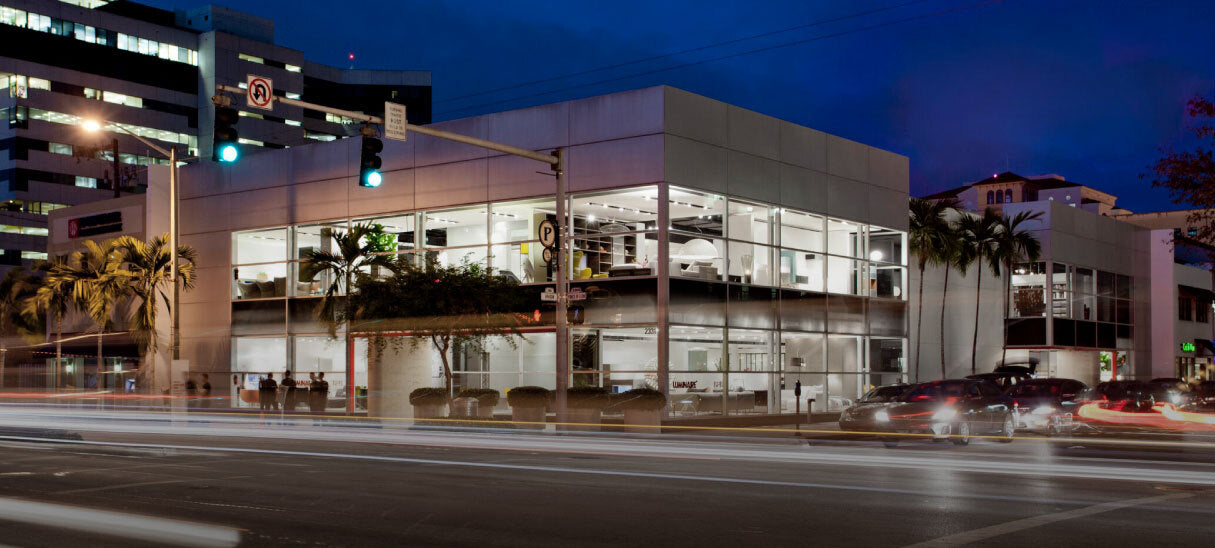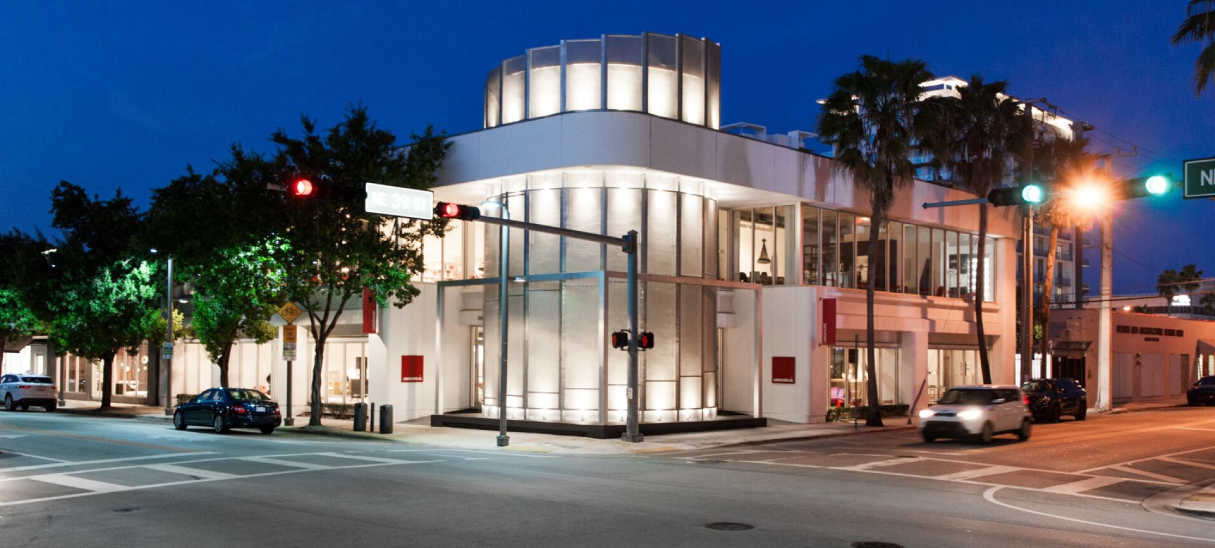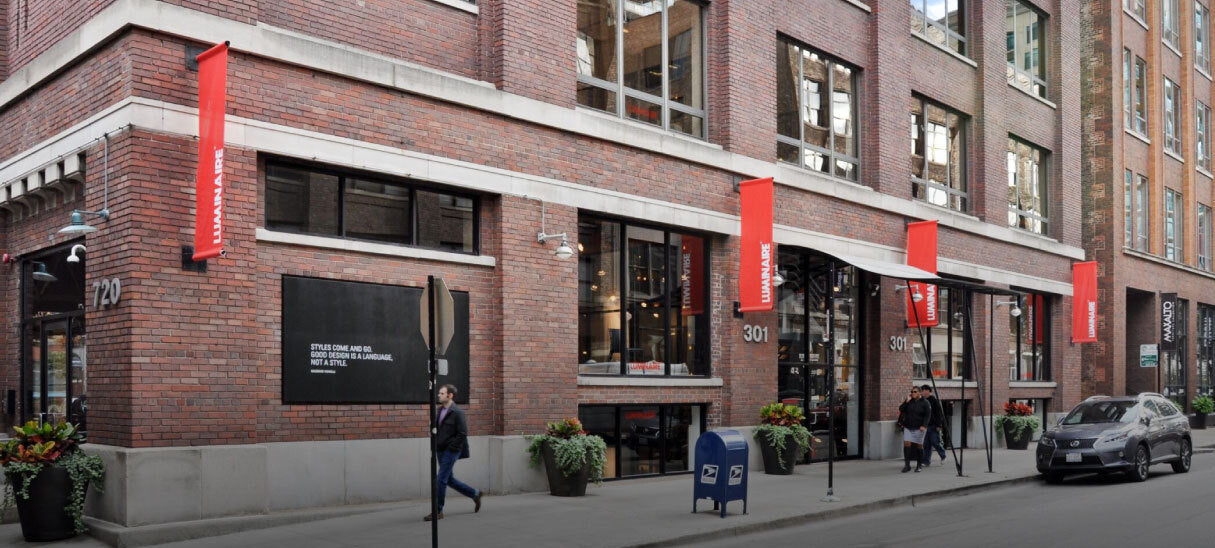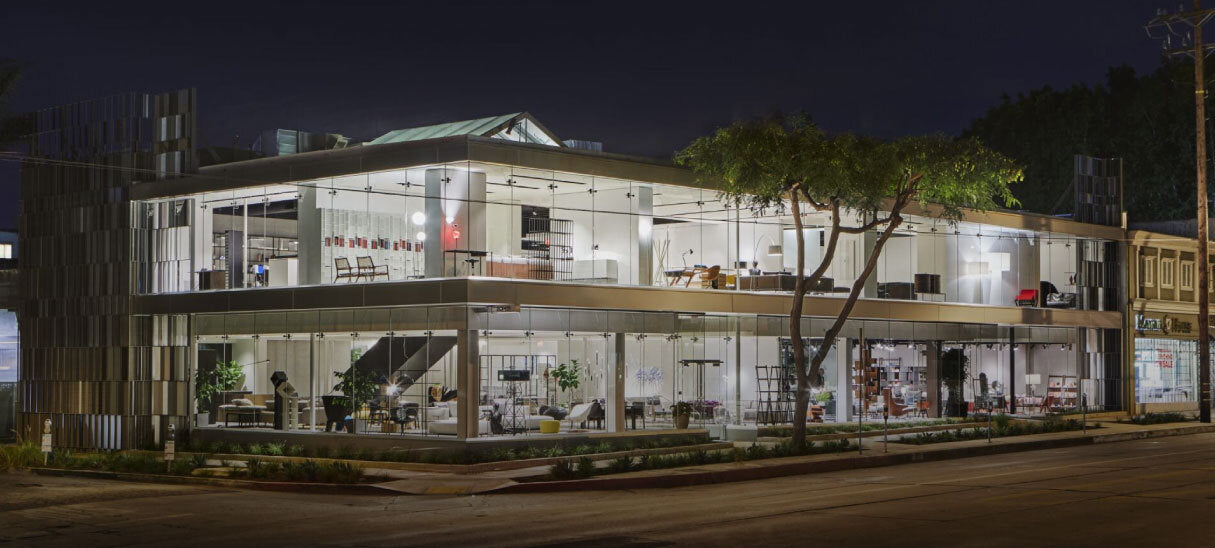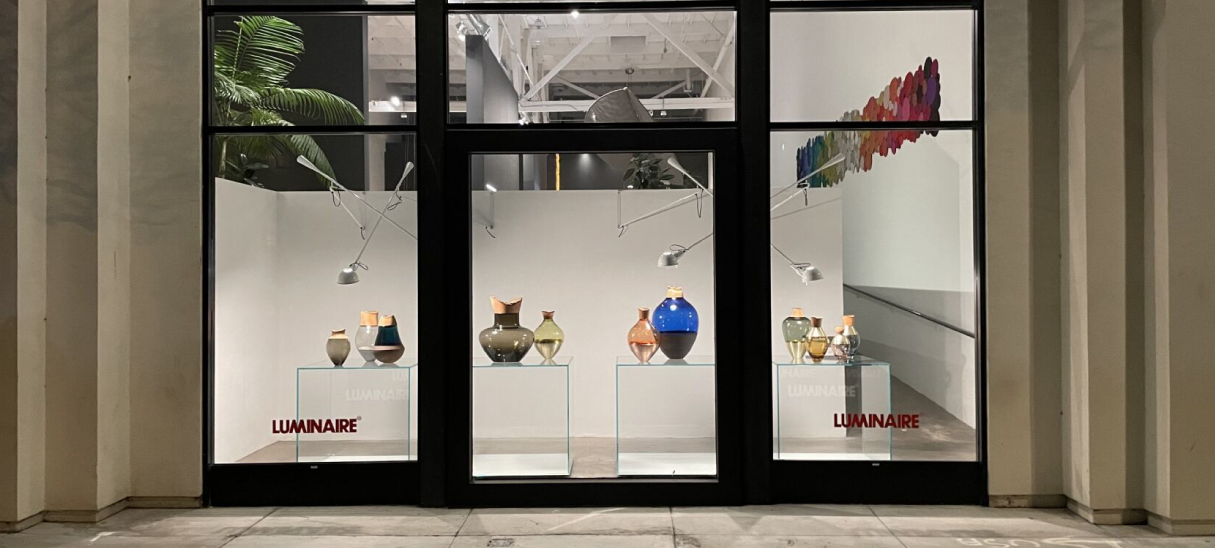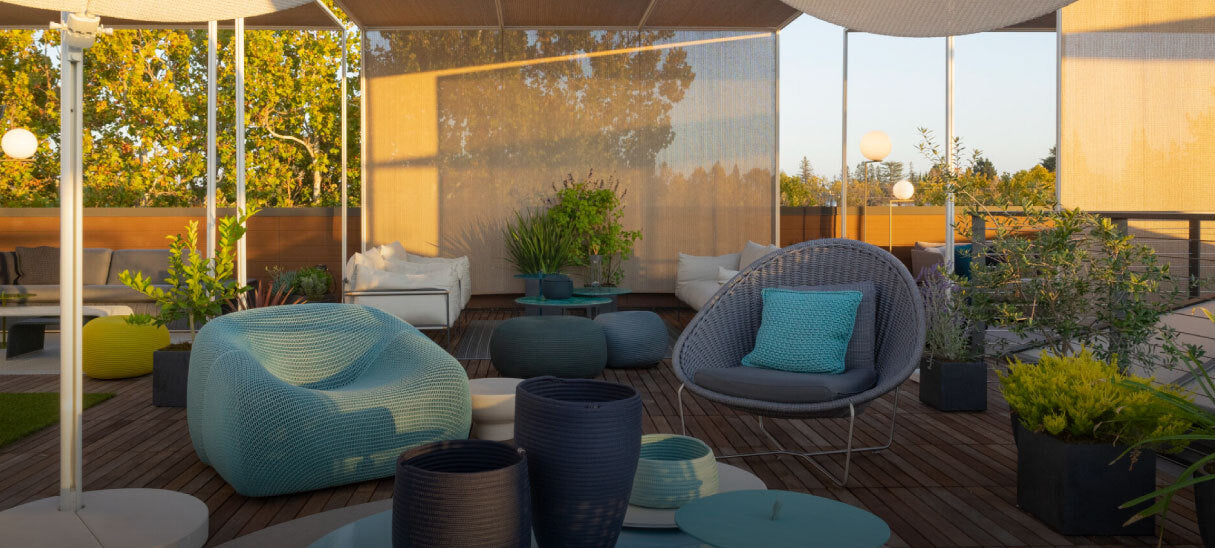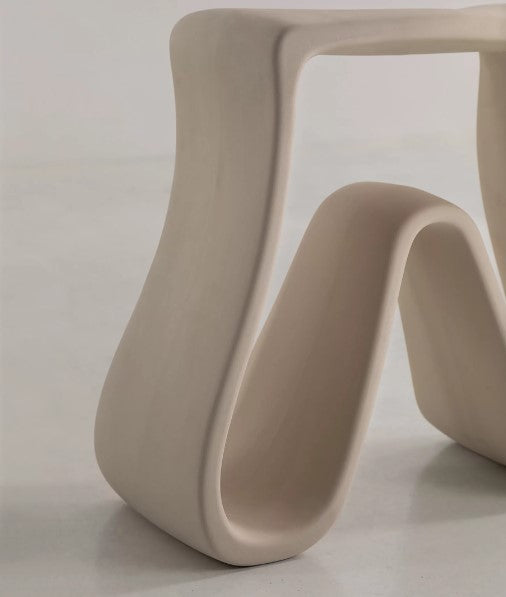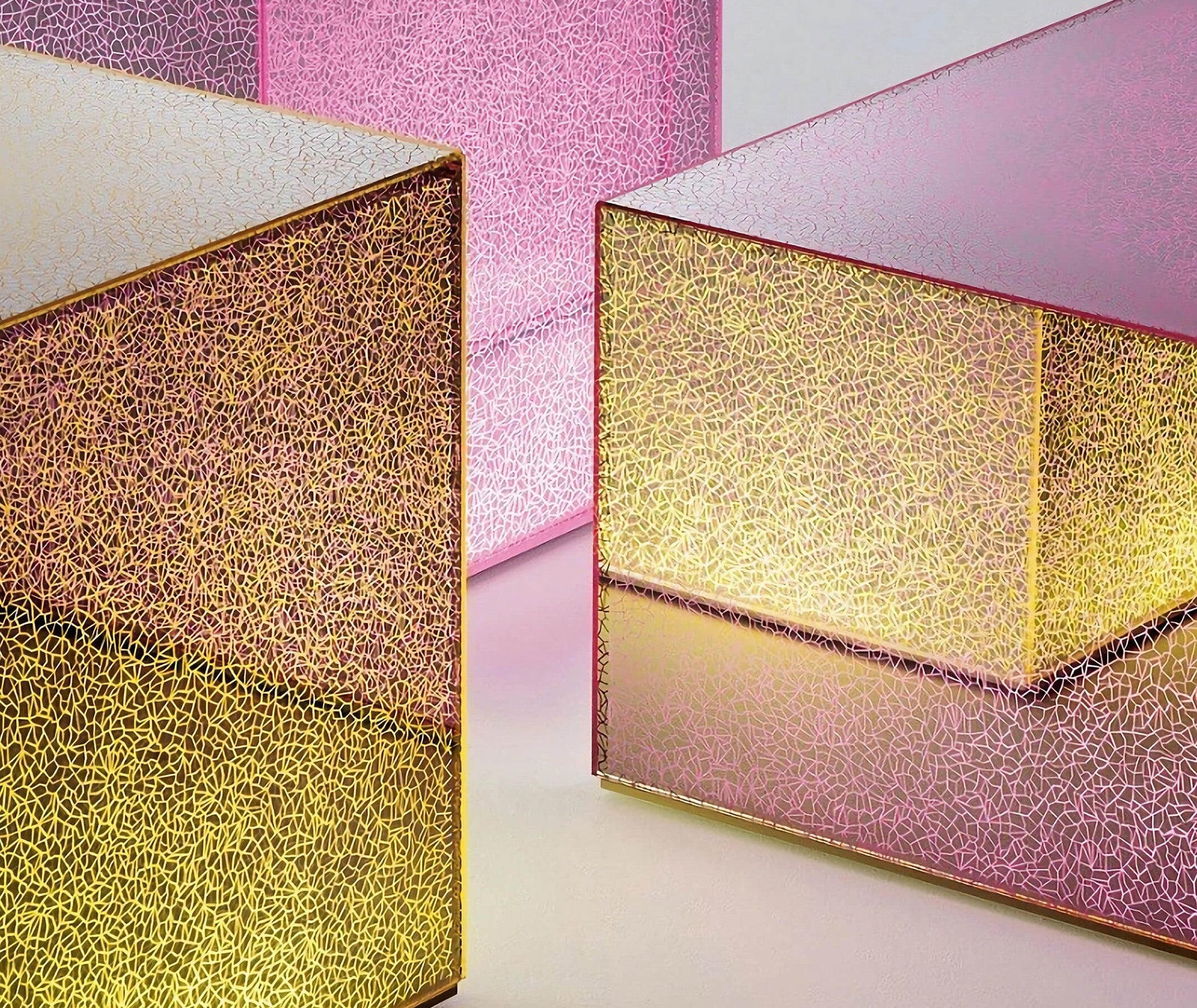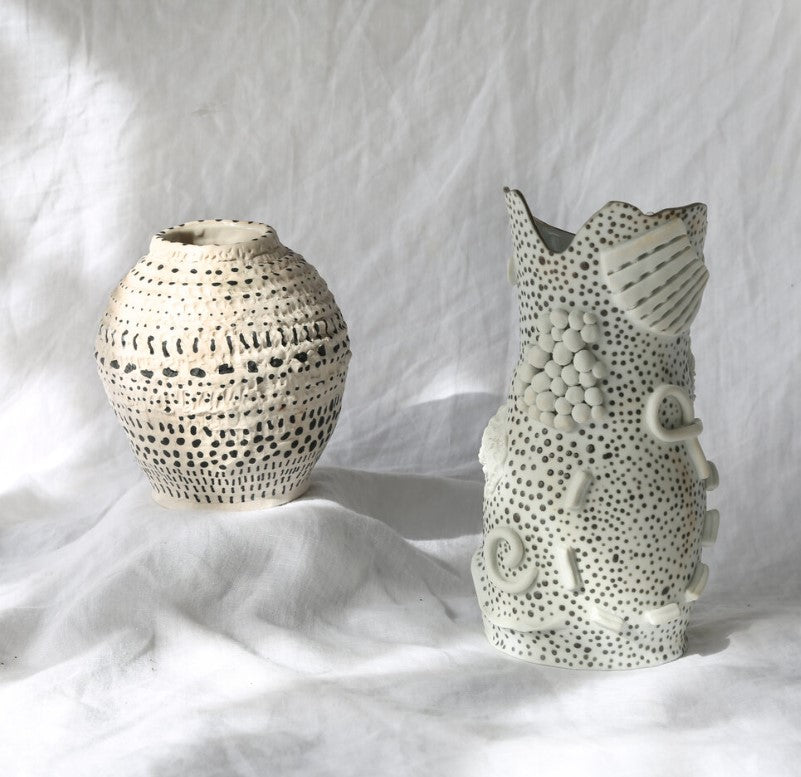Dynamic and multifaceted, elegant yet unconventional, Hella Jongerius strikes us with an eagerly innovative approach to color and a keen interest in tactility, crafting furniture, housewares, and textiles that speak to a sense of lighthearted amusement while impressing us with a refined sophistication that arrests the senses and opens our minds to new possibilities in technique and form. Immersed in a process that is at once all encompassing yet never fully complete, the Dutch-born and Berlin-based Jongerius brings her audience on a voyage of discovery, engaging the user with each piece she creates, a world that unfolds with mesmerizing attention to detail, rooted in the past yet leaning towards an uncertain future yet to be written.
Whether pushing the limits of industrial production or experimenting with a storied approach to handicraft, the work of Hella Jongerius is a study in opposites, a unity of the traditional and the contemporary, the simple and the complex. From her highly popular Polder sofa for Vitra, a veritable collage of textile that narrates the power of asymmetry with details that delight, to her Porcelain, and later Felt, stool that investigates material as if it were one strand of textile, crafting a pleasing shape that beckons joy and charming curiosity in any space it sits, Jongerius’s furniture celebrates the contradictions that breathe life into our environments, beautiful though eccentric, captivating though perhaps a bit unnerving. Working in this paradoxical milieu of the piquant and the passive, in an effort to communicate the unspeakable or inexpressible, Jongerius also fashions objects that become silent partners of bemusement and support in spaces that command emotional veracity and goodwill, whether with the healing effect of the animated gaze in her Angry Animals series or with the stimulating yet serene play of light and color in her Facet Bottle and Diamond Vase. In a well-designed home or adorning with levity the wonder of a public space, Jongerius’s furnishings and objects inspire grace and a delicate synergy, a negotiation between the naïve and the profound, the jovial and the somber.
Forever curious and undeniably tenacious, Hella Jongerius has, in addition to designing a myriad of products from chairs to housewares, also navigated a striking journey into the world of textiles, having established an enduring and productive partnership with the textile company Maharam since early on in her career. Here her devoted research into color and material takes center stage, weaving dimensions in her pieces that embrace a multi-tonal quality with a limited number of yarns as with her Washi designs and experiment with unexpected repetitions and irregular forms as with Spindle, also designed for Maharam, reflecting a unique color sensibility with bright hues from turquoise to burnt orange, indigo, and bronze. Currently on view in a university space at Eindhoven is her Loom Room, a reimagining of the textile crafting machine and its three-dimensional possibilities. Working with the space and its existing architecture and beams, textiles become what she calls “pliable architecture,” creating cubes and other soft, tactile structures that complement and contrast the sleek modernist space in which it rests. With this piece, Jongerius encourages us to reexamine our surroundings as influenced by the strongest, lightest construction that exists – 3D weaving – and its useful application to architecture, sportswear, and even the aircraft industry. By disrupting space and challenging our ways of seeing, Loom Room brings contemporary relevance to an ancient tradition of weaving and illustrates how color and texture can enrich our lives with a soulful verve, intricate and exquisitely superb.
The unfinished, the provisional, and the possible: all three define Jongerius’s work as part of something grander, uniting the creativity of her craft with the latest advancements in industrial production whether designing furniture for Vitra, textiles for Maharam, or any number of products for IKEA, Royal Tichelaar Makkum, or KLM. Winner of the Sikken Prize in 2017, her work can be seen in museums and galleries all over the world, including the Cooper Hewitt Design Museum, the MoMA, the London Design Museum, and Galerie Kreo in Paris. Above all, Jongerius hopes her designs tell a story, one of process and curiosity, and not necessarily of perfection. “Good design doesn’t always mean polished perfection,” she says. “Sometimes it’s the apparent flaws, the quirks and individualities that we most appreciate in a product. These are the marks that make something stand apart, that tell stories of a life, of creation. Often they are the marks of the makers – signs of manufacture by careful, skilled human hands.” Surely we are inspired by the work of Jongerius, as it speaks to us with individuality and insight, balanced aesthetics with limitless possibility of material.January 2024

